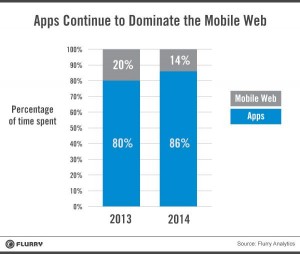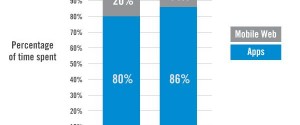The news industry is still struggling with the shift to digital, as the leaked New York Times innovation report underscores. Apart from new required competencies like video, data visualization, and analytics that digital transformation demands, there is a similar tectonic shift in reader (user) expectation. News has gone from being a canonical resource that people are expected to consult to a digital, just-in-time service delivered to people wherever they are. It’s now been six years since we first heard, if news is important, it will find me, and news outlets are still striving to realize that vision.
 The current expectation that important news will find the user is highly relevant to mobile. Chances are, your handheld device knows everything about you: the location of your favorite restaurant, your movie preferences, and even your fitness habits. And yet in many cases we are still using our phones the way we read print newspapers — consulting them when we need information, and optimizing our home screen (front page). But as people spend more of their mobile time interacting with apps, there is an ever greater opportunity for those apps to take advantage of the data via the software and the hardware to deliver what users want when they are likely to need it.
The current expectation that important news will find the user is highly relevant to mobile. Chances are, your handheld device knows everything about you: the location of your favorite restaurant, your movie preferences, and even your fitness habits. And yet in many cases we are still using our phones the way we read print newspapers — consulting them when we need information, and optimizing our home screen (front page). But as people spend more of their mobile time interacting with apps, there is an ever greater opportunity for those apps to take advantage of the data via the software and the hardware to deliver what users want when they are likely to need it.
Yahoo is moving toward contextual search, which would enable them, if granted API access, to provide far more relevant search results informed by apps. And the idea of invisible apps running in the background and serving up information and services on the fly is taking hold. Just as the news industry is responding to the shift in user expectation that the important news must find us, next-generation mobile will require that context-aware, timely information gathered via software and hardware finds us, too.


 If you’re not shivering right now, perhaps you were at CES in Vegas this week. Among the loveliest of launches is
If you’re not shivering right now, perhaps you were at CES in Vegas this week. Among the loveliest of launches is 